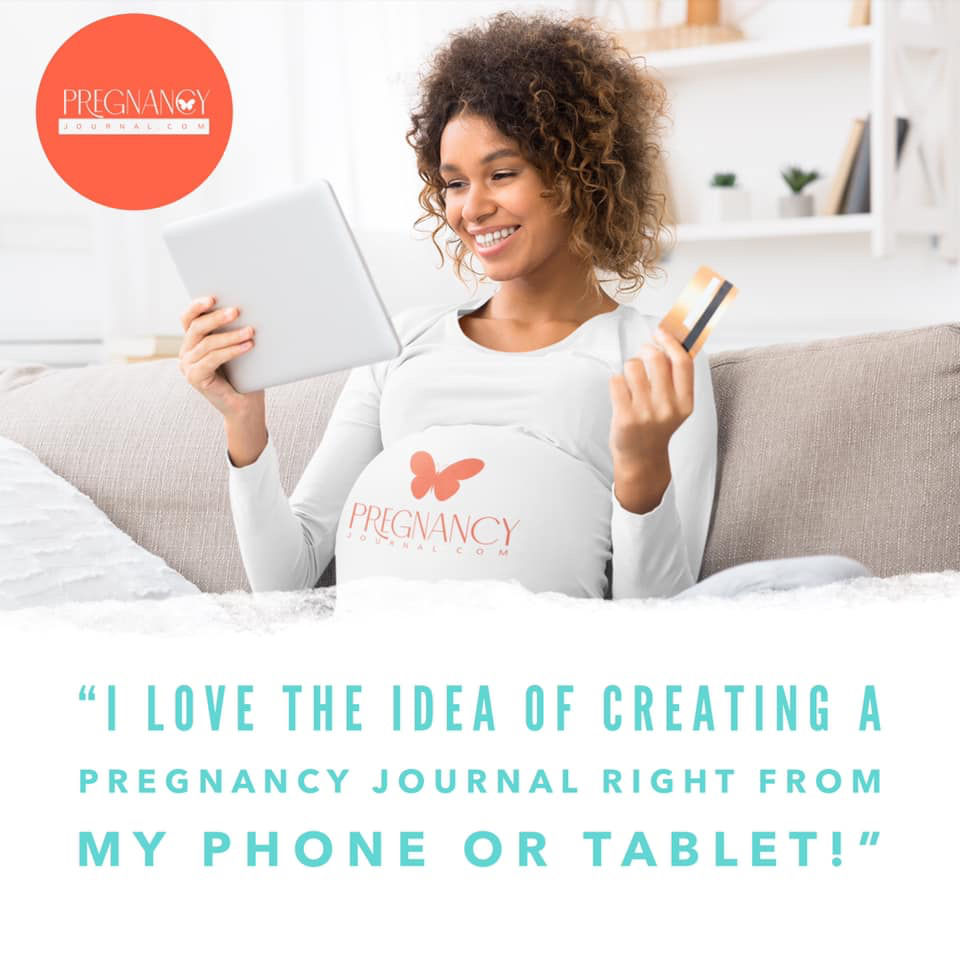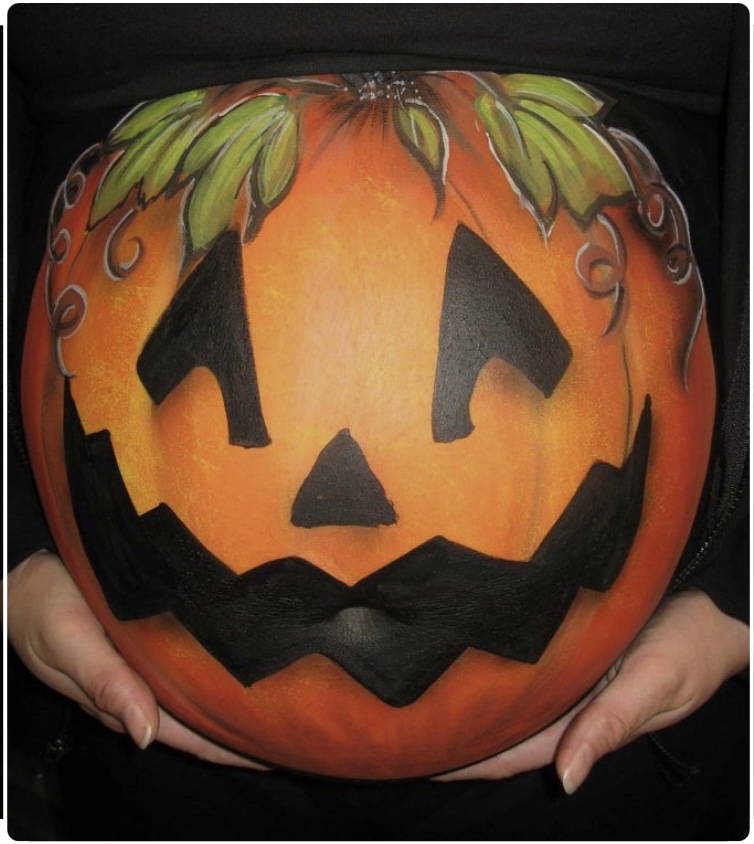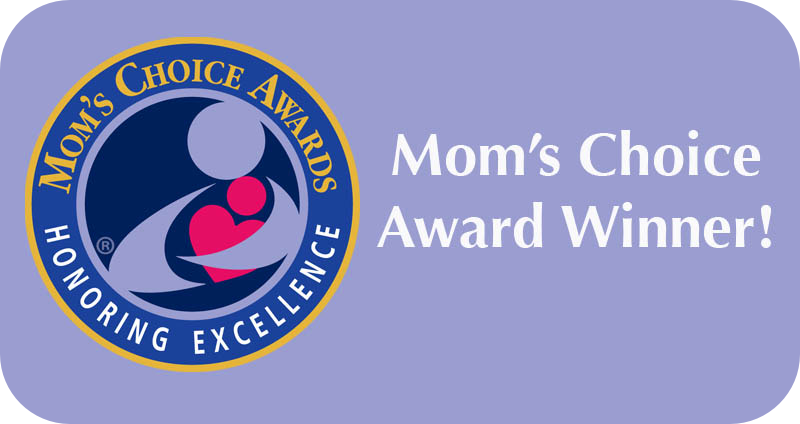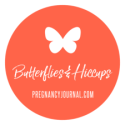COVID-19, Pregnancy, Nursing, and Vaccination: Perspective of an ER Doctor
Dr. Alaina Rajagopal, MD PhD CTropMed and Host of The Emergency Docs podcast
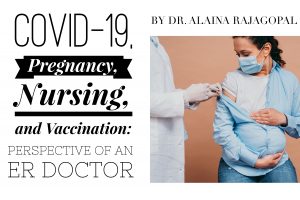
As a pregnant emergency medicine physician during the pandemic, I took special interest in the risks associated with pregnancy and COVID-19. Early on in the pandemic, we really had no idea how COVID-19 affected pregnant women and a lot of our recommendations were based on how closely related viruses like the Severe Acute Respiratory Syndrome (SARS)virus and Middle East Respiratory Syndrome (MERS) virus affected pregnant women. We knew that these viruses could cause miscarriage, preterm delivery, and more severe illness in pregnant women so I knew I needed to take extra precautions. I worked in close coordination with my obstetrician but we were figuring things out along with the rest of the scientific and medical community. Fortunately, we have been able to learn a lot about SARS-CoV-2, the virus that causes COVID-19 since the beginning of the pandemic.
First, we now know that pregnant women are at increased risk of developing serious illness from COVID-19. This means that pregnant women are more likely to be hospitalized, admitted to the intensive care unit, or placed on mechanical ventilation (life support). Women with health conditions like diabetes and obesity are also likely at higher risk than those without coexisting health problems. Pregnant women infected with COVID-19 may also be at risk for pregnancy complications like preterm birth and are more likely to have their babies admitted to the neonatal intensive care unit after birth.
One question I got often in my job as an ER doctor and virologist is whether COVID-19 could be transmitted from mom to baby during pregnancy. The evidence suggests that there is not intrauterine or vertical transmission of COVID-19 from mother to baby or, if it does occur, it is very, very rare. There is currently limited evidence based on several small studies rather than one large study so some of the studies have conflicting evidence. The infant can most definitely be infected by a COVID positive individual the moment they are born, including mom. Therefore, if mom is COVID positive at the time of birth, she should be very careful to wear a mask, wash hands frequently, and enlist the help of family members until she is feeling better.

If mom becomes infected while breastfeeding, there was particular concern regarding whether she should continue to breastfeed or if the infant should be given formula instead. It is still not definitively known if SARS-CoV-2, the virus whichcauses COVID-19, is transmitted in breast milk. One case report found SARS-CoV-2 RNA in breast milk; however, the majority of evidence suggests that SARS-CoV-2 is not transmitted in breast milk. Therefore, at this time, having COVID-19 is not considered a contraindication to breastfeeding as the risk of transmission from breast milk is low. That said, mothers who have COVID-19 should be sure to wear a mask and practice good hand hygiene before holding the infant as she can still infect the baby by touch, coughing, or respiratory droplets. An alternative is to have the mother pump her breast milk and have the infant bottle-fed by another COVID negative family member.
 We are so fortunate to have vaccines available in the United States and we have seen the cases decline steadily since we started vaccinating. I was breastfeeding when I got vaccinated and my son was one month old at the time of my first vaccination. I know that many women are concerned about whether they should be vaccinated or not while they are pregnant or nursing. There is limited data available on pregnant women who have been vaccinated. As of February 2021, over 20,000 pregnant women have been vaccinated in the United States with no adverse effects. Based on what we know about how vaccines work, and that pregnant women are regularly vaccinated with other non-COVID vaccines without risk, it is unlikely the COVID vaccine poses a risk to pregnant women. It is likely that vaccination may transmit antibodies to the fetus and can; therefore, provide some level of protection to the baby. Animal studies of Pfizer, Moderna, and Johnson & Johnson vaccines all found that the vaccine was safe for use during pregnancy but human studies are ongoing. There are currently no known risks to pregnant patients getting the vaccine. Ultimately, getting vaccinated during pregnancy is a personal choice. Knowing the increased risk of severe illness if a pregnant woman is infected and balancing that with the minimal risk of getting the vaccine, I would choose to get the vaccine while pregnant.
We are so fortunate to have vaccines available in the United States and we have seen the cases decline steadily since we started vaccinating. I was breastfeeding when I got vaccinated and my son was one month old at the time of my first vaccination. I know that many women are concerned about whether they should be vaccinated or not while they are pregnant or nursing. There is limited data available on pregnant women who have been vaccinated. As of February 2021, over 20,000 pregnant women have been vaccinated in the United States with no adverse effects. Based on what we know about how vaccines work, and that pregnant women are regularly vaccinated with other non-COVID vaccines without risk, it is unlikely the COVID vaccine poses a risk to pregnant women. It is likely that vaccination may transmit antibodies to the fetus and can; therefore, provide some level of protection to the baby. Animal studies of Pfizer, Moderna, and Johnson & Johnson vaccines all found that the vaccine was safe for use during pregnancy but human studies are ongoing. There are currently no known risks to pregnant patients getting the vaccine. Ultimately, getting vaccinated during pregnancy is a personal choice. Knowing the increased risk of severe illness if a pregnant woman is infected and balancing that with the minimal risk of getting the vaccine, I would choose to get the vaccine while pregnant.
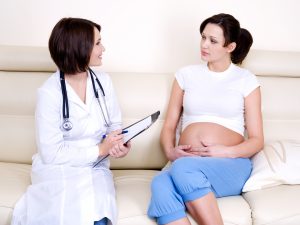
Getting the vaccine while pregnant is a personal choice. It is something each individual should discuss with their healthcare providers and determine if getting vaccinated is the right choice for them. If a pregnant woman chooses to get the vaccine, she should consider enrolling in the v-safe program which gathers health information on vaccinated pregnant women. It may also be useful to consider the likelihood of getting infected by COVID-19 due to exposures. For example, is the woman in a high risk job like working in a hospital or grocery store? Does she have any preexisting medical conditions like diabetes or obesity? Are people in her family in high-risk jobs? Are there a lot of people/kids who live at home and could potentially infect the mom? If the woman has any risk-factors, the safest choice is likely vaccination. If the woman lives with a partner and they both work from home and don’t interact with other people, the risk of infection is low so the vaccination can probably wait.
If a woman chooses to wait until after delivery to be vaccinated, the next question becomes, “is it safe to get the vaccine while nursing?” I took the COVID-19 vaccine while breastfeeding so I certainly think so based on the available evidence. Studies have shown that antibodies with neutralizing capacity can be passed to infants in breast milk so it actually can give the baby some immunity if mom gets vaccinated while breastfeeding. This is great since babies can’t currently be vaccinated and clinical trials are just starting for children. Clinical trials that have been completed so far did not include lactating women so the safety and efficacy have not specifically been evaluated in lactating women. That said, there is no known scientific reason they would not be safe for mom or baby.
There have also been some myths percolating on the internet that suggest that the COVID-19 vaccine causes infertility. This is not true. There is no evidence at this time that suggests the COVID-19 vaccine, or any vaccine, causes infertility.
Pregnancy can be an amazing experience but it also can be completely anxiety-provoking, especially in the context of a pandemic. All pregnant women should discuss the risks associated with their pregnancy and make medical decisions in close coordination with their care providers and families. The last year has certainly been unusual but I am optimistic about the future and that the end of the pandemic is nearing. I would emphasize that it is critical to have as many people vaccinated as possible to end the pandemic as soon as possible. I would encourage everyone to make decisions that are right for them, but also to consider their neighbors, their friends, the at-risk strangers they may encounter in the grocery store. As our population has grown, we have become even more dependent on one another. I hope that if we get nothing else out of the pandemic, it is to learn to have empathy for not only those who are close to us, but also all of the other people who may be strangers, but are still related to us through our actions and indirect interactions.
ABOUT THE AUTHOR: 
Disclaimer: The views and opinions expressed in this article are those of the authors and do not (necessarily) reflect the views of PregnancyJournal.com. PregnancyJournal.com can in no way whatsoever be held responsible for the content of such views nor can it be held liable for any direct or indirect damage that may arise from such views.

